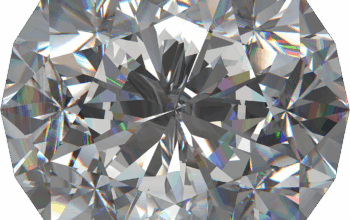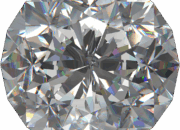In the realm of scientific discourse, a prevailing question resonates among both scholars and the lay public: Do scientists find popular science boring? This inquiry unveils layers of complexity and insight, revealing the nuances of how scientific professionals engage with the broader narrative of their discipline. To decode this phenomenon, one must examine several dimensions, including the motivations of scientists, the divergent realms of academic rigor versus popularization, and the cultural perceptions that shape these attitudes.
At the outset, it is essential to delineate the nature of scientific inquiry. Scientists, immersed in the pursuit of knowledge, adhere to rigorous methodologies—formulating hypotheses, conducting experiments, and analyzing data. This immersion often engenders a profound appreciation for the technicalities and intricacies that characterize their fields. For many, the act of discovery—unraveling the mysteries of the universe—constitutes the zenith of intellectual fulfillment. However, when scientific findings are distilled into simpler forms for mass consumption, some practitioners may perceive this simplification as a betrayal of the complexity that underpins genuine scientific understanding.
The dichotomy between academic research and popular science frequently creates friction. Academic journals prioritize peer-reviewed articles laden with technical jargon, stressing precision and depth. In contrast, popular science endeavors to translate complex concepts into accessible narratives that captivate a wider audience. This bifurcation can lead to a sentiment among scientists that popular science ‘dumbs down’ their work, rendering vast swathes of nuanced information unrecognizable in the effort to attract readers. They may lament the transformation of their labor into mere entertainment, rather than a conduit for enlightenment and intellectual engagement.
Moreover, there exists a profound disconnect between the motivations of scientists and the prevailing market forces of popular science. The industry thrives on sensationalism and simplification, often prioritizing broad appeal over accuracy. This phenomenon can foster a sense of frustration among scientists who feel that their work is being misrepresented. They may perceive popular science as a vehicle for misinformation, leading to public misconceptions about scientific principles, methodologies, and findings. Such frustrations underscore a compelling argument: the genuine respect and rigor inherent in scientific research can sometimes clash with the sensationalistic motives of popular science.
Yet, while some scientists may view popular science as monotonous or lacking depth, others find value in its potential to ignite public interest. The realization that their discoveries can inspire curiosity among non-specialists can resonate powerfully. For instance, when scientific concepts are woven into engaging narratives, they can stimulate a broader interest in STEM fields, particularly among younger audiences. Many scientists acknowledge that fostering a public appreciation for science can be as crucial as producing research. As tradition would have it, the alignment of scientific inquiry with societal needs can sometimes best be achieved through the engaging lens of popular science.
Popular science is not merely a derivative of scholarly outputs; rather, it can serve as a bridge to augment public understanding and dialogue. It brings forth the opportunity to elucidate the implications of scientific discovery, placing it within the context of societal challenges. When addressed effectively, popular science can elucidate the applicability of complex principles, thereby inspiring action—be it in climate advocacy, health awareness, or technological advancement. In achieving this goal, scientists have the potential to reinforce their role as thought leaders, translating esoteric concepts into accessibility devoid of losing essence.
This juxtaposition drives a vital conversation about the responsibilities of both scientists and popular science communicators. A symbiotic relationship should be fostered, one that encourages collaboration rather than confrontation. Scientists can engage with popular communicators to ensure that important messages permeate without compromise to accuracy. Conversely, communicators can help scientists appreciate the broader societal impact of their work, championing the notion that outreach can be instrumental in transforming knowledge into empowerment.
Furthermore, it is crucial to consider the evolving landscape of digital engagement. The rise of social media platforms has redefined popular science; visual content, infographics, and short videos now play pivotal roles in dissemination. This transformation presents unique opportunities for scientists to connect with audiences, often resulting in enhanced interactions that can dismantle preconceived notions of boredom. As scientists leverage digital venues to convey their findings, they may discover that engagement transcends traditional barriers, appealing to a diverse array of interests and backgrounds.
In essence, the question of whether scientists find popular science boring is likely to elicit a spectrum of responses. The spectrum ranges from disdain for oversimplification to appreciation for the opportunity to inspire. While the tension between academic rigor and popularization persists, it is integral to recognize that both realms serve distinct yet complementary purposes in fostering scientific literacy. Champions of science, whether practitioners or communicators, share a collective responsibility to inspire curiosity, uphold integrity, and cultivate a society appreciative of scientific endeavors.
Thus, the debate surrounding popular science not only challenges preconceived notions about boredom but encourages re-examination of what it means to engage with science. By redefining the narrative, we can appreciate the dual roles of both scientists and communicators, fostering an ecosystem in which depth and accessibility coexist harmoniously. Embracing this multifaceted approach, scientists may discover that popular science, rather than being a mundane exercise in noise, is a powerful conduit for invigorating public discourse about our world and our place within it.












